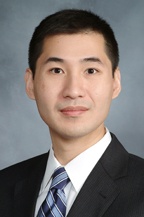Small achievements, remaining challenges in the CT market
Radiologists achieved a long-awaited victory at the beginning of 2015 when the Centers for Medicare and Medicaid Services (CMS) announced that it would reimburse annual low-dose CT lung cancer screening for longtime smokers between the ages of 55 and 77. But, as with any slice of success in health care, there are still a number of challenges facing the CT market.
While the organizers of currently up-and-running and new lung screening programs create protocols to meet the stringent CMS requirements for reimbursement, hospitals have also been working to make sure CT scanners meet the Medical Imaging & Technology Alliance’s (MITA) Smart Dose Standard, to avoid Medicare cuts beginning next year. At the same time, new Joint Commission standards that took effect July 1 put even more emphasis on making sure the radiation dose from CT scans is as low as possible.
The CMS made a “landmark decision” in reimbursing low-dose CT lung screening, says Dr. Andrea McKee, a radiation oncologist who runs the CT lung cancer screening program at Lahey Hospital & Medical Center in Burlington, Mass.
“It’s really going to dramatically change the way we manage lung cancer, and we’re all very excited about it,” McKee says.
In order to qualify for CMS reimbursement for a scan, patients with no signs or symptoms of lung cancer must be current smokers or must have quit smoking within the past 15 years, with a smoking history of at least 30 pack-years, an average of one pack a day for 30 years. Patients must then receive a written order for screening during a visit with a physician, physician assistant, nurse practitioner or clinical nurse specialist who reviews and discusses the benefits and harms of screening, including the possibility of a false positive and the exposure to radiation, and provides counseling on smoking cessation.
Providers are still waiting for CMS to issue a Current Procedural Terminology (CPT) code for the scans (providers anticipate the code will be issued in November) and are responding in different ways.
The lung cancer screening program at New York-Presbyterian/Weill Cornell Medical College is holding its bills and waiting for the CPT code to be issued before applying for reimbursement. They’re asking patients to sign a waiver, which states that if CMS does not reimburse the scan, the patient will be required to pay the fee. Before the CMS decision, all Medicare and Medicaid patients paid for the scans themselves.
Dr. Bradley Pua, director of the lung cancer screening program at New York-Presbyterian/Weill Cornell Medical College, says the language from CMS states that if facilities meet the requirements of shared decision-making visits and adding information to the ACR lung cancer screening registry, they “may” be reimbursed. “We decided that to protect patients in the long run, we needed to approach this from a practical mindset,” Pua says. “We weren’t comfortable saying to patients, ‘You will definitely get reimbursed,’ and sending them a bill later.”
Pua says his facility did look into offering free screenings, but struggled to decide how to address the 20 to 30 percent of patients who end up having a positive study. “Who pays for the follow up?” Pua says. “Again, in thinking about protecting patients down the road, it’s kind of hard to put that burden on people.”
...
This article first appeared in the October 2015 issue of DOTmed HealthCare Business News. Read the full story here.




